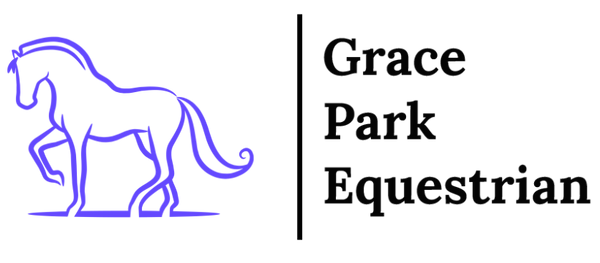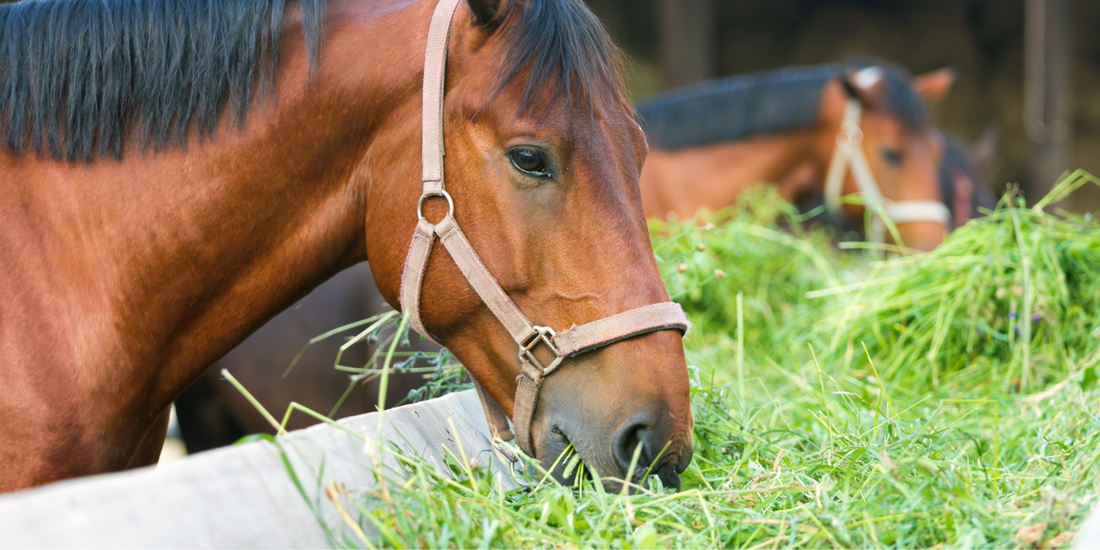As a horse owner, you want to ensure that your horse is getting the proper nutrition to maintain a healthy and active lifestyle. A well-rounded diet is essential for a horse's overall health and well-being. However, with so many options available, it can be overwhelming to know where to start when it comes to feeding your horse. In this guide, we'll take a look at the basics of horse nutrition and what you need to know to keep your horse in top shape.
The Importance of a Balanced Diet
A horse's diet should consist of a balance of forage, grains, and supplements. Forage, such as hay or grass, should make up the majority of a horse's diet as it provides essential nutrients, such as vitamins, minerals, and fiber. Grains, such as oats or barley, can provide a concentrated source of energy and protein. Supplements, such as vitamins and minerals, can be added to a horse's diet to provide additional nutrition.
It's important to note that each horse has its own unique nutritional needs and requirements. Factors such as age, breed, activity level, and overall health can all affect a horse's diet. For example, an older horse may require a different diet than a young, growing horse. It's essential to consult with a veterinarian or equine nutritionist to determine the specific needs of your horse.
Forage: The Foundation of a Horse's Diet
Forage, such as hay or grass, should make up the majority of a horse's diet. Not only is it a natural and essential part of a horse's diet, but it also helps to keep a horse's digestive system healthy. When choosing forage for your horse, it's important to consider the quality and type of hay or grass. For example, alfalfa hay is higher in protein and calcium than grass hay, making it a good option for growing horses or horses with a higher protein requirement.
It's also important to consider the age and quality of the hay or grass. Fresh, green hay or grass is preferable to hay or grass that is old or has been stored for a long time. Old hay or grass may have lost some of its nutritional value and can also be a source of mold or other contaminants.
Grains: A Concentrated Source of Energy and Protein
Grains, such as oats or barley, can provide a concentrated source of energy and protein for horses. However, it's important to feed grains in moderation as they can be high in calories and can lead to weight gain if not fed properly. It's also important to choose high-quality grains and to avoid any that are moldy or have any other contaminants.
When feeding grains, it's important to consider the specific needs of your horse. For example, a horse that is heavily worked or in training may require a higher intake of grains than a horse that is less active. It's also important to introduce grains gradually to a horse's diet to avoid digestive issues.
Supplements: An Additional Source of Nutrition
While a balanced diet of forage and grains can provide most of the essential nutrients a horse needs, supplements can be added to provide additional nutrition. Common supplements include vitamins and minerals, such as vitamin E, calcium, and selenium. However, it's important to note that not all horses require supplements and it's best to consult with a veterinarian or equine nutritionist to determine if supplements are necessary for your horse. It's also important to choose high-quality supplements and to follow the recommended dosage.
Special Considerations for Senior Horses
As horses age, their nutritional needs may change. Senior horses may require a diet that is lower in protein and higher in fiber to support a healthy digestive system. They may also require additional supplements to support joint and bone health. It's important to consult with a veterinarian or equine nutritionist to determine the specific needs of your senior horse.
Creating a Balanced Diet for Your Horse
Creating a balanced diet for your horse can seem overwhelming, but it doesn't have to be. By understanding the basics of horse nutrition, such as the importance of forage, grains, and supplements, you can make informed decisions about what to feed your horse. Remember to always consult with a veterinarian or equine nutritionist to determine the specific needs of your horse and to make sure that your horse is getting the proper nutrition to maintain a healthy and active lifestyle.
In conclusion, horse nutrition is a vital aspect of horse care and it's important to understand the basics of horse nutrition to ensure that your horse is getting the proper nutrition for a healthy and active lifestyle. Always consult with a veterinarian or equine nutritionist to determine the specific needs of your horse and to make sure that your horse is getting the proper nutrition to maintain a healthy and active lifestyle.

